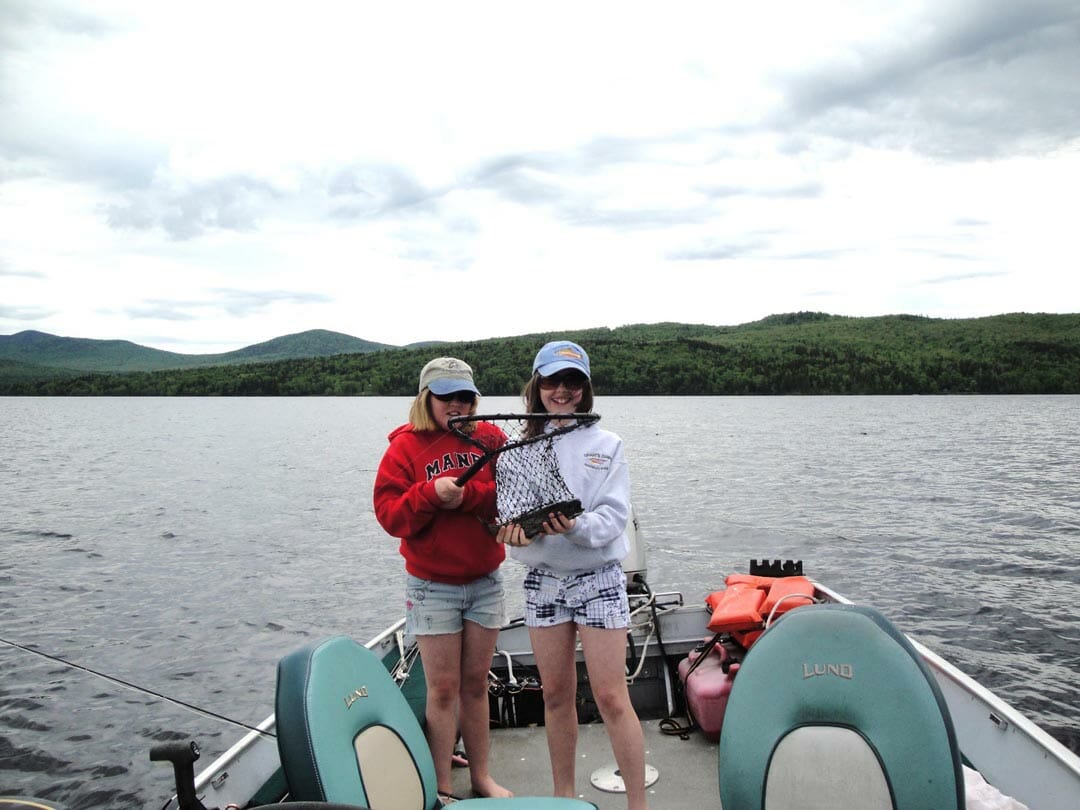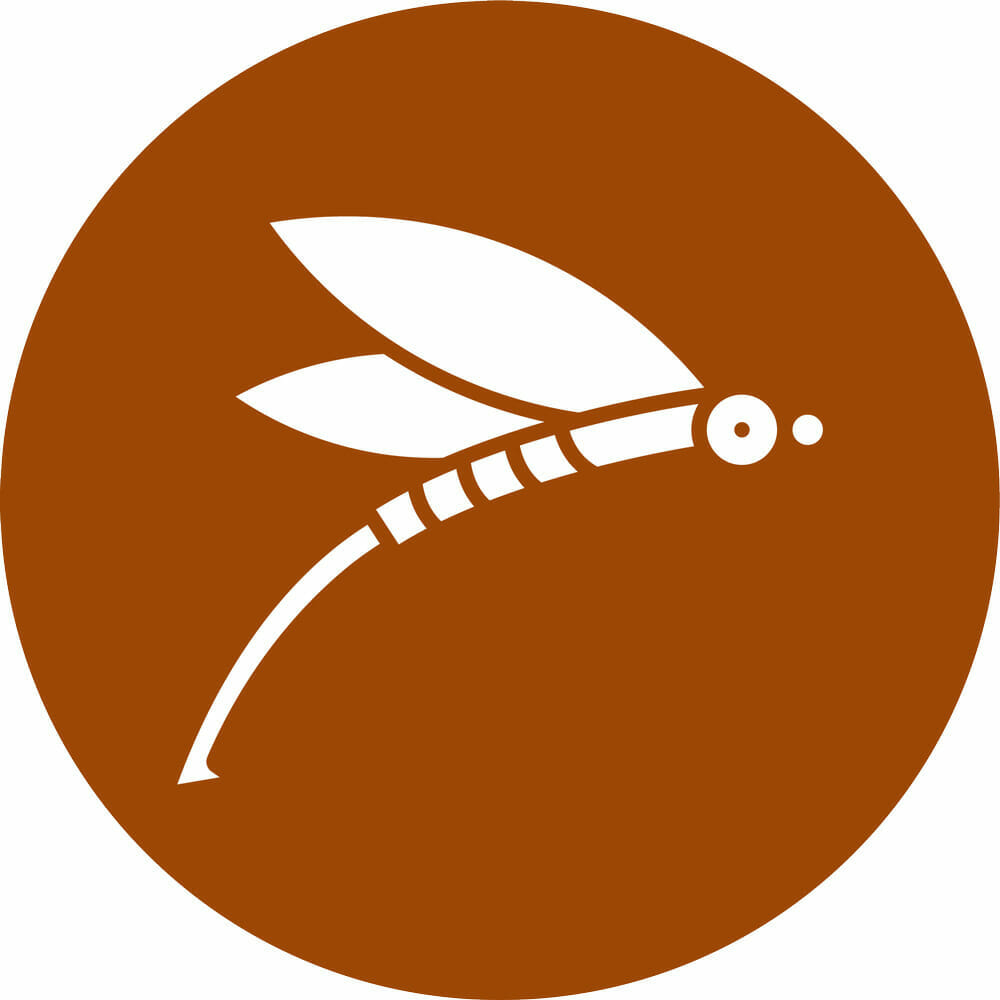



After the ice leaves Kennebago Lake, smelt is found in great quantities in the lake at the mouths of the brooks. This is where trout and salmon feed also. Smelt or small baitfish imitations seem to be the preferred patterns with Hendrickson hatches on warmer days, after 1:00 pm. Red Fox Hornbergs, Black Leech and Dragonfly nymphs are particularly productive early in the season. By the first week of June, the spawning run of the black nose dace begins. Fish the inlets and outflows and the sandy shorelines. The Black Ghost, Black Nose Dace, Nine-Three or Herb Johnson in smaller sizes – 8’s and 10’s seem to produce well in early June.
In late August and early September brook trout start to school and begin to ascend the Little Kennebago River. Wet fly and streamer fishing with high D line will yield fine brook trout catches. Try a Black Ghost or yellow wiggle.
The Logans and the Upper River are fished best after a late August or early September rain using a Mickey Finn bucktail or Kennebago Muddler (#10s) for fall trout.
As the water warms, dry fly fisherman will find plenty of fish in the shallows of the Logans. The Red Quill and Blue Dun are the first major hatch on Kennebago. During this period the ends of the lake are most productive.
Toward the middle of June, begins the Green & Brown Drake hatch. Wulff patterns work well during this period The large Green Drake hatch usually last up to four weeks. Also use terrestrial imitations.
Into July, at the end of the Green Drake hatch, the bronze beetle and black ants lead the fly list with the old favorite, the Kennebago Muddler. Sizes 8 to 14 are most popular. Our most popular flies for these hatches are all available in our fly shop in the office.
As the water temperatures heat up the bigger fish head for deeper water. During these times we fish Crayfish, Leech and minnow imitations along the rocky bottom.
It starts at the base of Big Falls. Grant’s Camps maintains hiking trails and off-road parking along the gated 6 miles of the river. We have a resident population of native brook trout all season long. The spring salmon begin migrating up the river by mid-June. Wulffs, Black Ghost, Grey Ghosts and Red Fox Hornbergs work well during this early period.
Toward the end of June and during the warmer months of July and August stones, light cahills, terrestials and midges work well. Fall run salmon migrate upstream on the first heavy rainstorms in late August and early September. These fish seem to prefer streamer patterns such as Colonel Bates and Black or Grey Ghosts.



Flyout service for a scenic ride through the mountains or for a day of fishing with a picnic to Rapid River, Sabboth Day pond and C Pond transportation by Acadian Seaplane. Catch a flight right from a dock at Grant’s and be back in time for dinner. Make reservations before arrival.